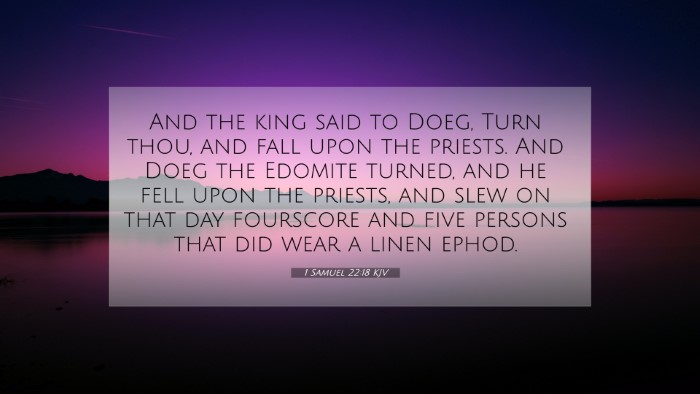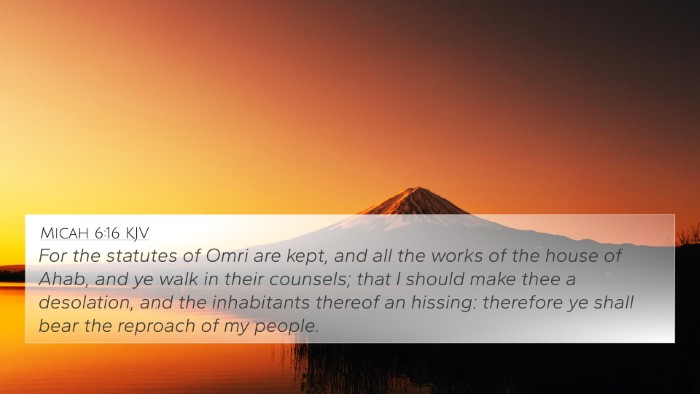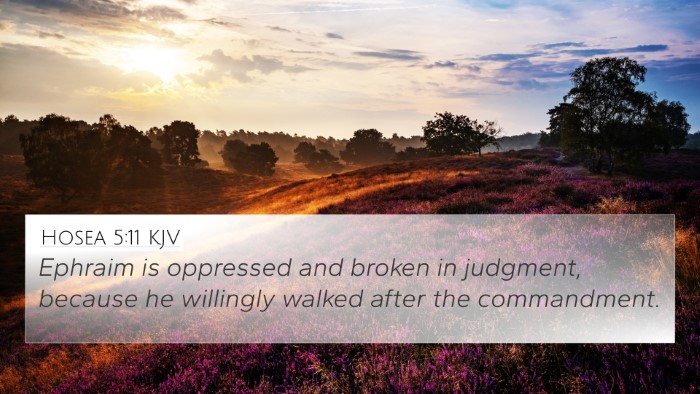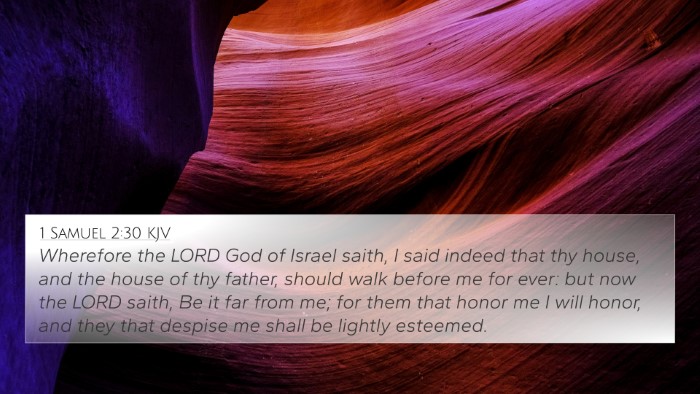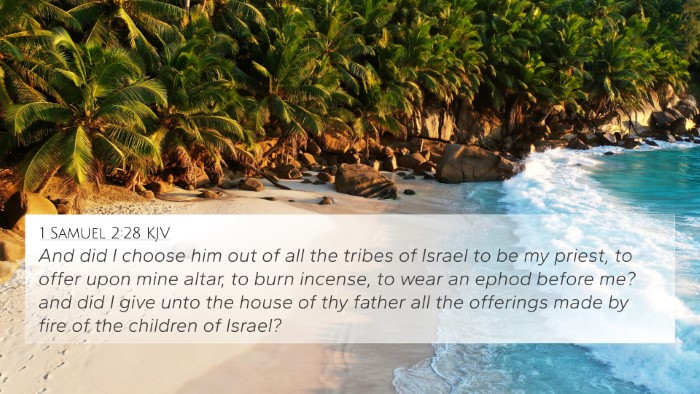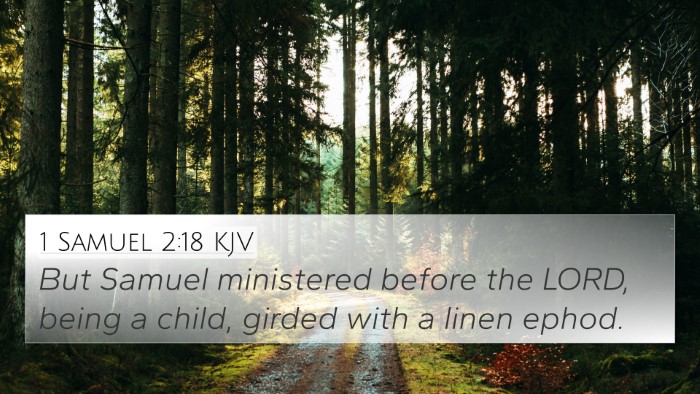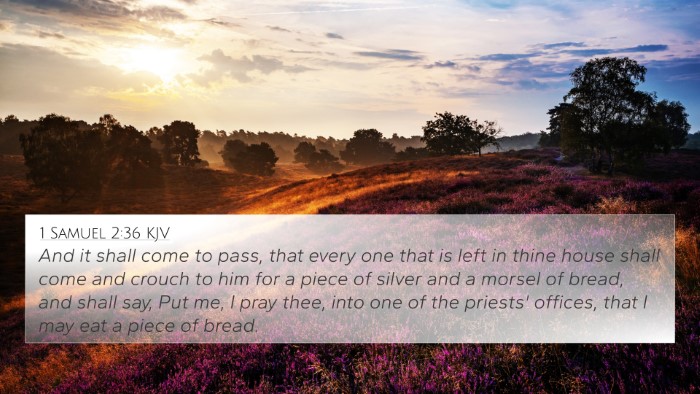Understanding 1 Samuel 22:18
This verse reads as follows:
“And the king said, Thou shalt surely die, Ahimelech, thou, and all thy father's house.” (1 Samuel 22:18 KJV)
In this passage, we see the king's harsh judgment against Ahimelech, reflecting on themes of authority, accountability, and the consequences of actions. Below, we will explore a comprehensive interpretation of this verse by combining insights from well-established commentaries and providing connections with other relevant scriptures.
Contextual Overview
The context of 1 Samuel 22 highlights a critical moment in the tumultuous relationship between David and King Saul. After David flees from Saul, he finds refuge with Ahimelech, the priest of Nob. In his haste, David lies to Ahimelech, which places the priest and his family in danger when Saul learns of their assistance to David.
Commentary Insights
Matthew Henry’s Commentary
Matthew Henry emphasizes the gravity of Saul's command and the wickedness that arises from fear and paranoia. He points out that Saul’s actions not only stem from his jealousy towards David but also from a sense of loyalty to his throne which he feels is threatened. Henry underscores the tragic consequence that innocent lives pay due to Saul's decisions.
Albert Barnes’ Notes
Albert Barnes delves into the implications of Ahimelech's support for David by suggesting that the spiritual oversight in Israel is compromised under Saul's reign. Barnes notes that this incident showcases Saul's descent into tyranny and how his choices reflect a broader moral failure among Israel’s leadership at the time.
Adam Clarke’s Commentary
Adam Clarke highlights the importance of Ahimelech's role as a priest and how his death, along with his family, is a powerful reminder of the misplaced trust in earthly leaders. Clarke also draws parallels with themes of sacrifice and martyrdom, indicating how the innocent often suffer alongside the guilty in the pursuit of righteousness.
Thematic Connections
This verse opens up discussions on several biblical themes:
- Authority and Accountability: The actions of Saul represent a failure of divine authority and the ramifications for those under such a leadership.
- Faithfulness and Misplaced Trust: Ahimelech’s loyalty to David ultimately leads to his demise, questioning where true faith should be placed.
- The Role of the Priests: The priesthood is highlighted in this narrative, reflecting on their responsibilities amidst political chaos.
Cross-References
To better understand 1 Samuel 22:18, we can find several related scriptures, facilitating deeper thematic Bible verse connections:
- 1 Samuel 21:1-9: The account of David's immediate interaction with Ahimelech.
- Psalm 52: A reflection on trust and betrayal, potentially connected to the fate of Ahimelech.
- 1 Samuel 15:23: Saul’s rejection by God connects to his lapse in judgment.
- Luke 6:22: The New Testament reinterprets themes of persecution, echoing the plight of Ahimelech.
- Hebrews 5:4: A reminder that roles in spiritual leadership come with serious accountability.
- Jeremiah 6:13: Addresses the corruption of leadership which is seen in Saul’s command.
- Mark 8:36: Questions the value of gaining worldly power at the cost of one's life, akin to Saul’s decision.
- Proverbs 29:12: A proverb underlining the consequences of untrustworthy leaders.
- Matthew 23:34-35: The fate of prophets highlights the tension between truth and authority.
- Acts 7:51-53: Stephen's speech connects the history of rejection faced by God's messengers.
Conclusion
1 Samuel 22:18 serves as a profound reminder of the dangers inherent in power dynamics and leadership failures in a biblical context. The tragic fate of Ahimelech, despite his loyalty, highlights the theme of suffering associated with standing for truth during times of moral decline.
In exploring this verse, we uncover a vast inter-Biblical dialogue, relating not only to historical occurrences but also to modern themes of faith, leadership, and accountability. As we cross-reference this passage with others, we deepen our understanding of the rich narrative of the scriptures.
For those seeking to look deeper into the meanings of biblical texts, employing tools for Bible cross-referencing such as concordances and reference guides can illuminate these profound connections. Understanding the thematic links between scripture offers invaluable insights into the overarching narrative of the Bible.


